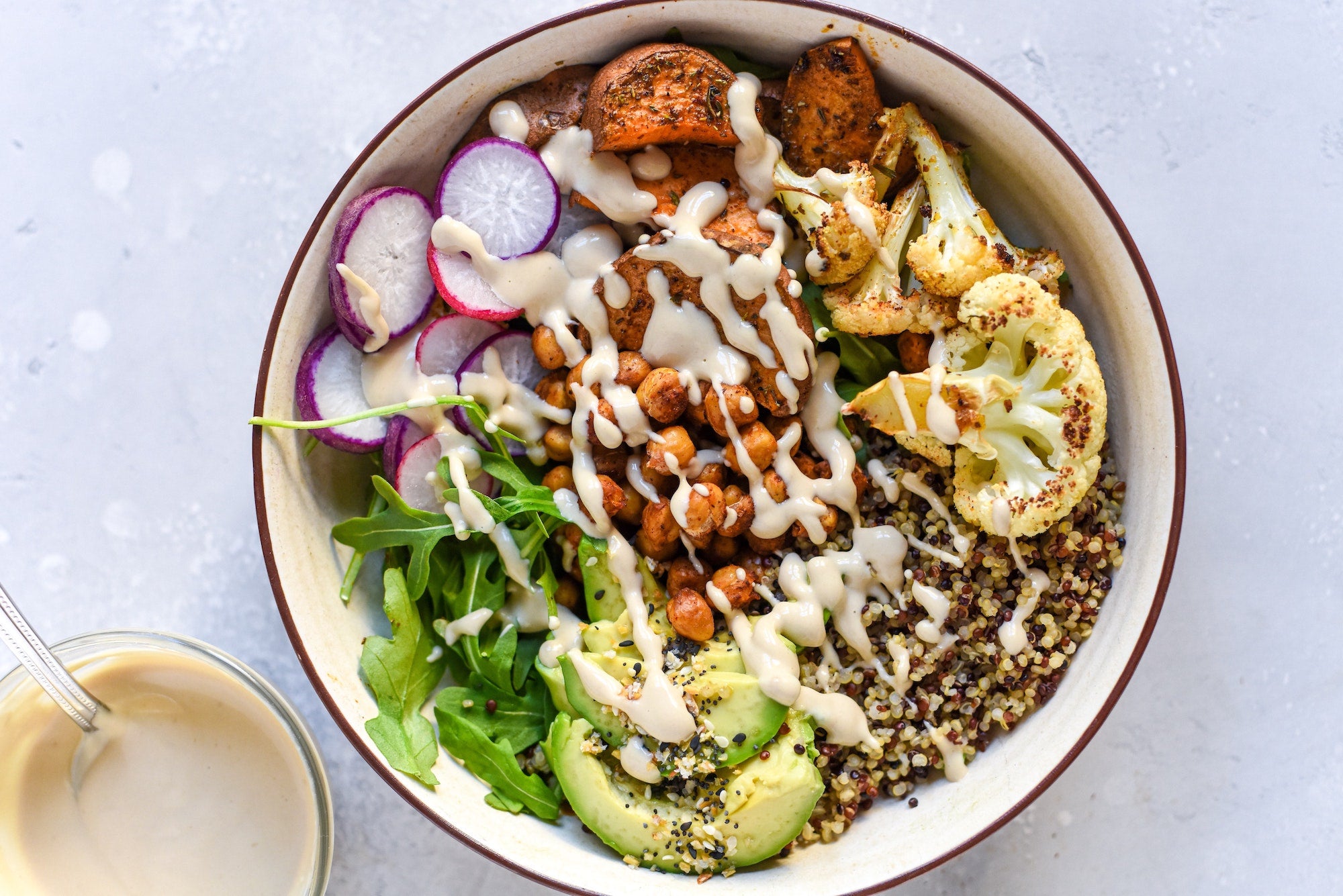For most of us, it’s been drilled into our minds to drink eight cups of water a day to stay well hydrated. You might be surprised to know, however, that this recommendation isn’t backed by solid science. Even worse? It doesn’t consider electrolytes—a vital component of the hydration equation.
While recommendations surrounding hydration can be incredibly nuanced, the takeaway is always the same: proper hydration is essential to physical and mental health.
So, how much water should you drink in a day? And why are electrolytes so important? We’ll be answering those questions shortly, but first, let’s review the basics of hydration and dehydration.
What Are Hydration and Dehydration?
Hydration is defined as having adequate fluid in your body tissues.[*] What kind of fluids? Water, in particular. Your body contains more water than anything else—up to 60% of your total body weight. Every cell, tissue, and organ requires water to work properly and perform essential functions like temperature control, waste removal, nutrient transportation, and joint lubrication.
Every day, you lose water through your breath, sweat, urine, and feces, and that water needs to be replaced through food and beverages. Dehydration occurs when the body loses more water than it takes in. Symptoms of dehydration may include:[*]
- Thirst
- Dry mouth, nose, lips, and skin
- Less frequent urination
- Headaches
- Increased heart rate and breathing
- Fatigue
- Dizziness or lightheadedness
- Confusion
Dehydration is nothing to mess around with. If not addressed and treated promptly, it can lead to kidney failure, seizures, stroke, and even death. The good news is that most cases of dehydration can be treated by simply drinking fluids. In severe cases, fluids may need to be given intravenously.
Hydration is important for everyone, but especially for athletes, low-carb dieters, those experiencing vomiting or diarrhea due to illness, those who live in warmer climates, and anyone who likes to work up a good sweat.
What Are Electrolytes and Why Are They Important?
Most people think that hydration is all about drinking water, but that’s not the case. It’s also about getting electrolytes, particularly sodium and potassium. Electrolytes are minerals that have a positive or negative electrical charge when dissolved in water. These charges play an essential role in many functions that keep you alive, including the operation of your brain, nerves, and muscles, and the creation of new tissue. Electrolytes also help regulate fluid balance, produce energy, and strengthen bones.
Like water, electrolytes are lost through sweat, urine, and feces and must be replaced through food, beverages, and supplementation. There’s a caveat though: while dehydration can cause electrolyte deficiency, so can drinking too much water. Allow us to explain.
Can You Overhydrate?
Many people incorrectly believe that they’re benefiting their health by drinking as much water as possible. Eight cups be damned—I’ll drink 14! This is especially true of endurance athletes. It’s not unusual for athletes to guzzle large volumes of water before, during, and after athletic events, regardless of their actual thirst level.[*]
The reality is, excessive water consumption can have just as serious repercussions as drinking too little water. Overwatering can dilute blood sodium levels, causing a dangerous condition called hyponatremia. This condition is estimated to affect 13-15% of endurance athletes and non-athletes, too.[*] Those with mild hyponatremia may experience muscle cramps and fatigue, while severe hyponatremia can lead to confusion, seizures, brain damage, and death. Additionally, studies show that hyponatremia independently predicts both heart and liver disease.[*]
To be clear, this doesn’t mean that you shouldn’t drink adequate amounts of water, especially when exercising. It just means that you shouldn’t drink too much water and that you also need to replace your electrolytes, especially sodium, potassium, and magnesium. We’ll discuss how to replace electrolytes in a minute, but first, let’s answer everyone’s number one hydration question: how much water should you drink per day?
How Much Water Should You Drink in a Day?
The goal of proper hydration is to achieve a level of fluid and electrolyte balance that supports optimal health and performance. Balance is the key word here. It means drinking only as much water as you actually need while also taking in enough electrolytes.
So, how do you know how much water to drink? As it turns out, the body has a handy, built-in mechanism that guides us: thirst. Thirst isn’t a random sensation. When you need more water, receptors in your brain tell a brain structure called the hypothalamus that your blood volume is low or your osmolality (the amount of electrolytes in the blood) is too high. This triggers thirst and encourages you to pour yourself a glass of water.
As such, healthy people rarely become dehydrated because they drink water (or some other high-water beverage) when they’re thirsty.
To ensure you’re getting an appropriate amount of water, simply drink to thirst. While water is the optimal choice, other beverages can also provide hydration, such as sparkling water, juice, sports drinks like Gatorade, teas, and coconut water. Certain beverages, on the other hand, are dehydrating, including soda, alcohol, energy drinks, and coffee.
How to Prevent Electrolyte Deficiency
While thirst is a reliable mechanism that tells us when we need more water, our bodies don’t have as effective a system for electrolyte intake. Instead, you must consciously ensure you’re getting enough of these essential minerals through diet or supplementation.
Here are some tips for getting adequate electrolytes:
- Eat your veggies. Certain veggies are high in natural sodium, including leafy greens (i.e., spinach, arugula, and kale), celery, beets, radish, and cucumber. Additionally, nuts are a great source of magnesium, while fruits provide plentiful potassium.
- Salt your food. There’s a reason salt tastes good—we need it! This is especially true if you’ve traded sodium-rich processed foods for whole foods, which have lower sodium levels. Don’t be shy about salting your food to taste.
- Add a supplement. To cover any blind spots in your diet, consider adding an electrolyte supplement to your routine, such as IQMIX. Simply add a packet of IQMIX to a glass of water to instantly create a delicious, hydrating electrolyte drink. Each stick contains 500mg sodium, 450mg potassium, and 750mg magnesium L-threonate. As a bonus, IQMIX also contains 250mg brain-boosting lion’s mane mushroom extract.
You may be wondering, “Can I consume too many electrolytes?” As with pretty much anything, including water, consuming too many electrolytes is possible, but this is rare. The body does a stellar job maintaining fluid and electrolyte balance and will excrete excess electrolytes through urine. However, if you’re looking for a good benchmark, aim for 3,000 to 5,000 mg of sodium, 3,400 to 4,700 mg of potassium, and 400 to 600 mg of magnesium per day.[*][*][*]
The Bottom Line on Healthy Hydration
Hydration isn’t just about water intake. For many people, electrolytes are the missing puzzle piece to optimal hydration. Ultimately, when it comes to hydration, the magic recipe is to drink enough water (but not too much!) and consume enough electrolytes.
Adjust your water intake based on your thirst and make a conscious effort to include electrolytes in your daily routine by eating sodium-rich veggies, salting your food, and incorporating an electrolyte drink mix, such as IQMIX. A well-balanced, hydrated body is a happy, healthy body!


